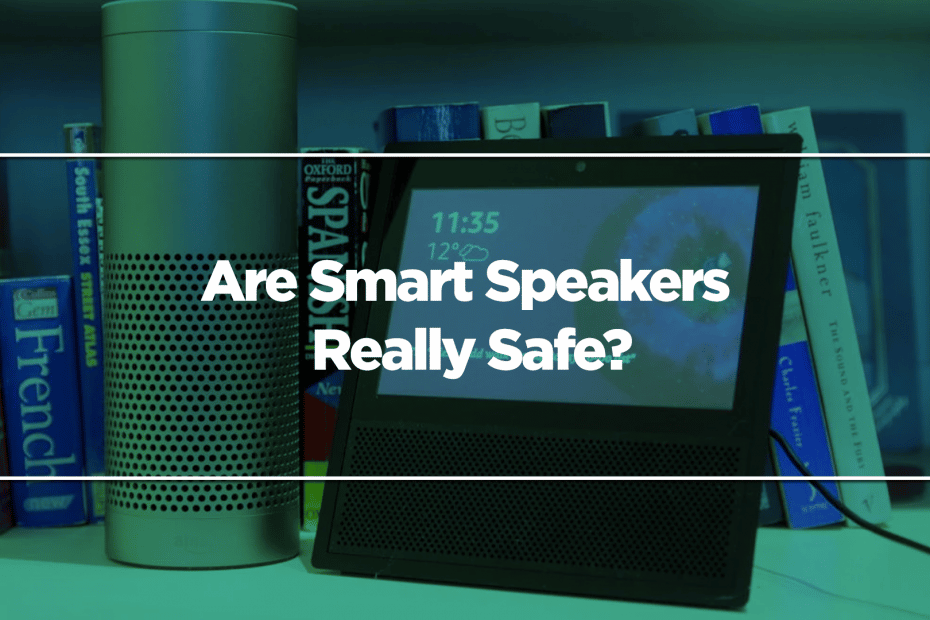Smart homes are very appealing to homeowners and soon-to-be homeowners. Who would not want to live in a space where the devices and appliances themselves help you multitask? Also, they help you better organize your life and stay informed and connected.
A smart hub was necessary for smart homes in the past. Nowadays, they are no longer a must-have. An increasing number of smart home devices now function without a hub.

So, how do you control these modern devices if you don’t have a hub? You can use their separate companion apps. But that’s quite a hassle. So instead of doing that, you should consider using voice commands. Almost every smart home device now is compatible with either Amazon Alexa, Google Assistant, or both.
One of the best ways to bring these voice assistants to your home is by buying smart speakers. And everybody and their mothers are doing it. Reports point out that smart speakers have seen a 40% increase in sales in the last three years. It is now totaling 100 million worldwide.
There’s a question everyone should ask before buying a device – especially internet-connected ones. How safe is it?
Smart speakers are safe for you. But only if you took the time to understand how they work and configure them correctly. Otherwise, hackers can take advantage of their vulnerabilities. However, the same goes for any connected device, so that’s no reason for you to shy away from smart speakers.
Here, we will teach you the main concerns about smart speakers. Furthermore, you will find information on making yours as secure as possible.
Privacy Concerns
The two main concerns about smart speakers revolve around privacy and security. Smart speakers take your voice commands to execute tasks. Therefore, it’s a listener – and it is a very good one at that. So, the device may know so much about you. It compiles information about you, takes your commands, and stores them in a server. That can put you in danger. You never know who can gain access to that information.
Luckily, the idea of smart speakers always listening and recording is a misconception. They only start recording after you say the “wake up command.” That could be “Hey Google,” “Hey Alexa,” or “Hey Siri.”
Furthermore, as internet-connected devices, smart speakers give hackers new opportunities. Norton reports that researchers believe hackers may be able to send signals to your smart speaker. The device may interpret that as a command. And so, hackers may gain control over your devices. Thankfully, researchers are working on a fix.
And as mentioned above, if you did the preventive measures, hackers should not be able to use your smart speakers against you.
7 Tips To Make Your Smart Speaker Secure
Different speakers come with varying features. Thus, it is important to familiarize yourself with the settings and get it right. That will protect your private data.
Here are some tips to limit the risks of your smart motherland getting hacked through your smart speaker.
Delete Past Commands
Again, smart speakers record your commands and store them on a server. You can also listen to those. Hackers can learn your routines and schedules if they gain access to these. For instance, they may know when you are not at home or what time you go to bed. Those are the perfect times for burglars to strike.

That said, it is best to delete your previous commands. It’s a great way to wipe any private information that your smart speaker may know.
Turn The Microphone Off
Smart speakers can listen to you because they have microphones. While they are not constantly recording, they are always listening. If that bothers you, you’d be glad to know many smart speakers allow you to mute them. However, please note that you need to turn them on again when you need to use them. So, you may need to choose between privacy and convenience.
Be Mindful of What You Connect to Your Smart Speaker
Smart speakers act as pseudo-hubs for your smart home devices. Meaning you can use them to control all your devices and appliances. However, it is smart not to connect everything to your smart speaker. For instance, you can leave out security devices like sensors and smart door locks.
That will prevent hackers from using voice commands to break into your house or disable your security system easily.
Additionally, it’s best also to disable the feature that links your calendar or address book. These are often rich sources of information.
Turn On Voice Recognition
Many smart speakers can now distinguish between different voices. That enables them to ignore potentially dangerous commands from kids. If your smart speaker has this feature, enabling it is highly recommended. That way, your smart home would not take instructions from strangers. Note that voice recognition is not 100% reliable and can sometimes fail.
Be Careful With What You Share With Your Smart Speakers
Again, smart speakers record your commands. So, don’t include information you don’t want the device to know in your commands. Avoid sharing your passwords, credit card information, Social Security number, and other private information.
Secure Your Network
Using a WPA3 encrypted Wi-Fi network at home rather than an open hotspot is wise. Also, create a guest Wi-Fi network for guests and unsecured connected devices. It adds a layer of protection to your network, so hackers can’t easily get to your smart speaker.
Hiding your Wi-Fi network from others is also encouraged.

Strengthen Your Passwords
Hackers must first guess your password correctly to penetrate your smart home. So, strengthening your passwords is a must. Furthermore, if two-factor authentication is available, use that feature. That ensures that even if hackers somehow guessed your password correctly, they still can’t listen to you or use your smart speaker.
And there you go. If you follow these tips, your smart speaker should be protected from vulnerabilities. But remember that hackers will always try to find new ways. So, it’s best to also be up to date with the best security practices.
